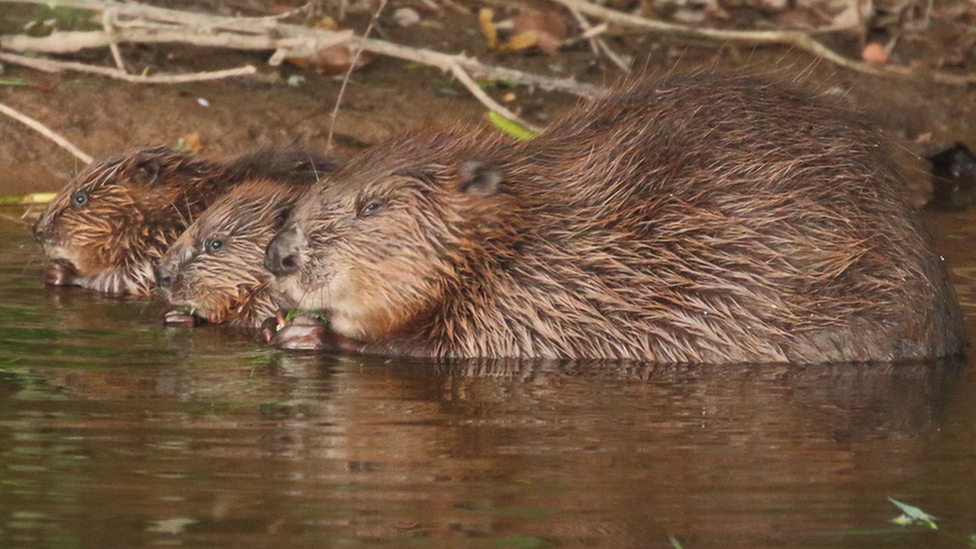The Wild Ken Hill beavers helping protect wildlife in heatwave
- Published
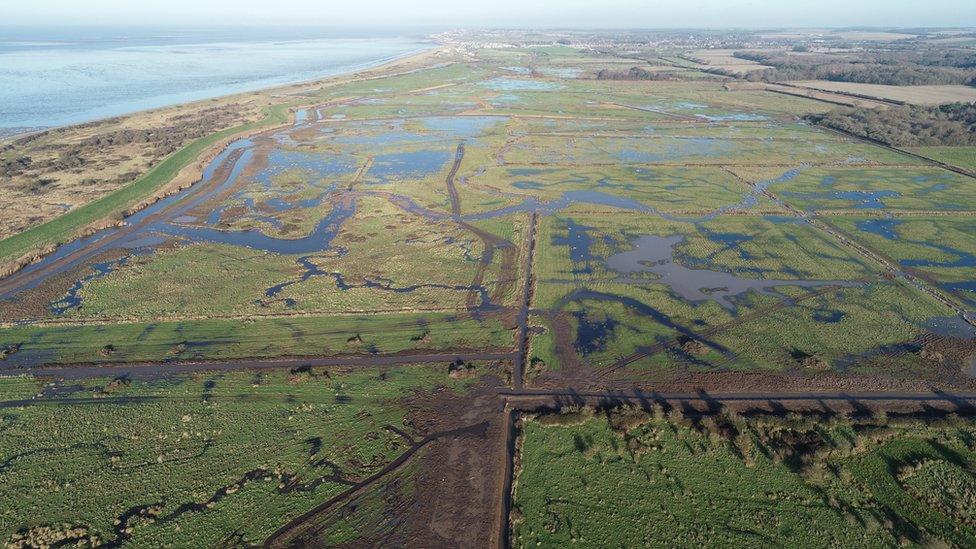
Wild Ken Hill is a conservation and sustainable farming project on the west coast of Norfolk
Much of the UK is sweltering in a heatwave with temperatures next week expected to rise still further. But what does it all mean for our flora and fauna?
More than 2,500 species have been recorded at Wild Ken Hill, a 4,000-acre nature site in Norfolk stretching from the sea through coastal scrub and freshwater marshes to wood pasture and farmland.
The site's ecologist Hetty Grant said the current heatwave meant "a lot of species are suffering".
Hedgehogs and snails in particular were struggling with the current heat.
"The impact is definitely varied," she said. "There are some winners but there are many more losers.
"Livestock in particular is affected when the water level goes down."
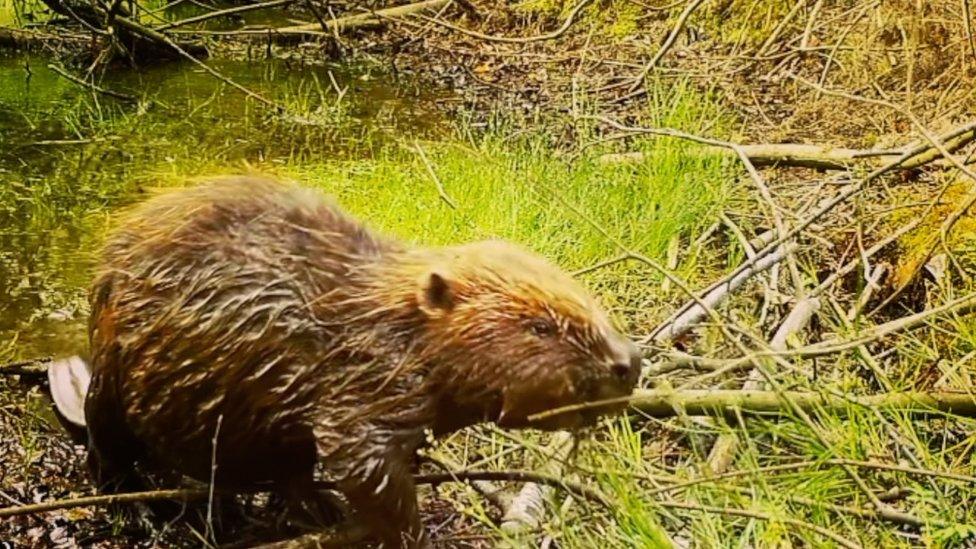
Two pairs of beavers were reintroduced at the site near The Wash last year
The current hot weather has highlighted what the project sees as the "crucial" importance of beavers.
Two pairs of Eurasian beavers were reintroduced at the site, at Snettisham, in 2020.
A keystone species, known for creating habitats for other animals, external, they were hunted to extinction in Britain for their fur, glands and meat in the 16th Century.
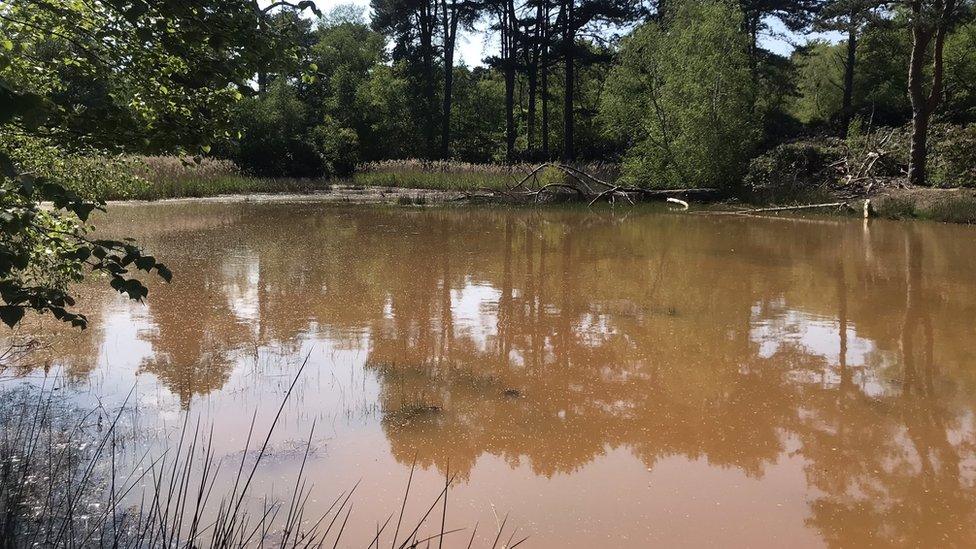
Wild Ken Hill says dams built by beavers are slowing the flow of water
Ms Grant said the beavers at Wild Ken Hill, which is holding a day-long nature festival in September, external, were already making their impact known in terms of water preservation at the site.
"The beavers on site here are doing an excellent job of holding water.
"They have built dams which are holding about 1m (3ft) of water which is being reabsorbed. They are doing a crucial job here.
"The amount of water they can hold in the land is just phenomenal."
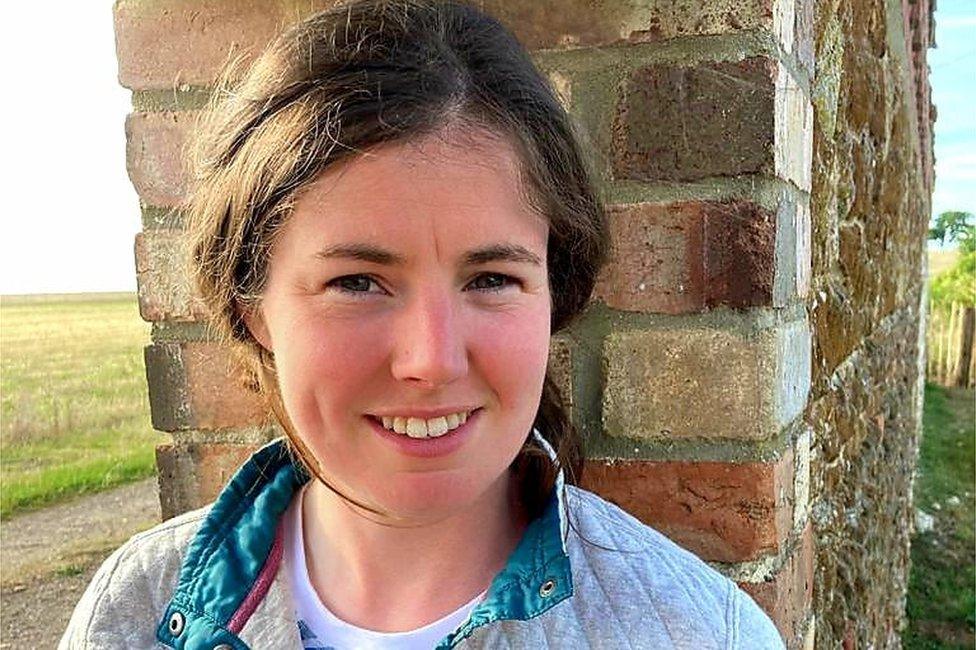
Ecologist Hetty Grant says the recently introduced beavers were doing a "crucial job" in stemming water loss at the site
She told how the animals at Wild Ken Hill, which was set up to return land to nature and sustainable farming, had "space to behave naturally" in the heat, which meant seeking out cooler and wetter spaces as required without human interference.
"They will try and stay cool," she said. "The current heat wave has come on the back of a period of drought, which meant the water was already lacking and is being reduced further."
The longer term impact of rising temperatures, she said, meant a greater struggle to survive for various types of flora and fauna.
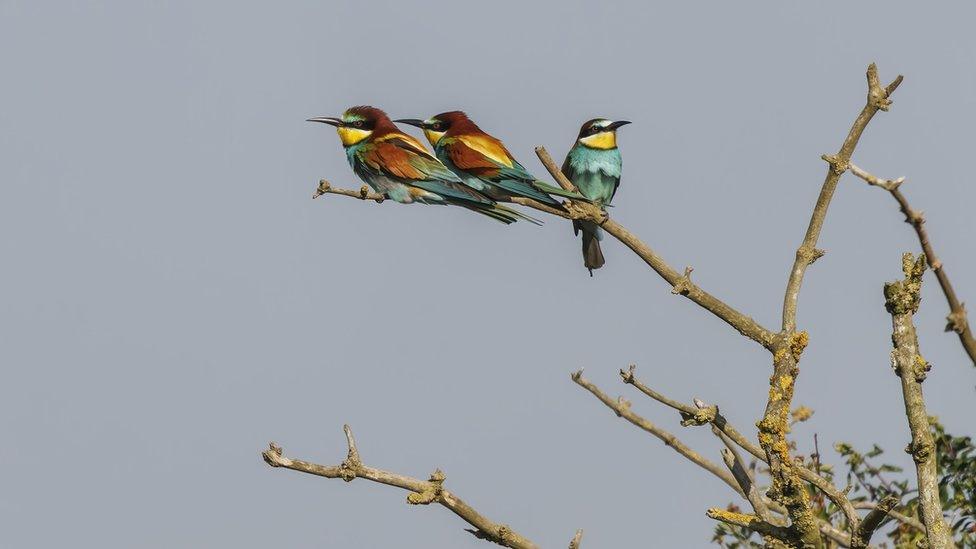
The exotic bee eater are usually found in southern Europe and northern Africa but are being pushed north by rising temperatures
One example, she said, was the rising number of bird species arriving from Europe, such as bee eaters, which in turn meant greater challenges for the bird species already here.
The exotic bee eater is usually found in southern Europe and northern Africa but are being pushed north by rising temperatures.
Asked what the general public could do to support wildlife when out and about, Ms Grant said: "It is all about acting responsibly.
"Being out with nature is really good for people and we can do our bit by keeping dogs on leads rather than letting them go off through areas where birds might be nesting because unprotected eggs do not fare well when exposed."

Find BBC News: East of England on Facebook, external, Instagram, external and Twitter, external. If you have a story suggestion email eastofenglandnews@bbc.co.uk, external
Related topics
- Published30 May 2022
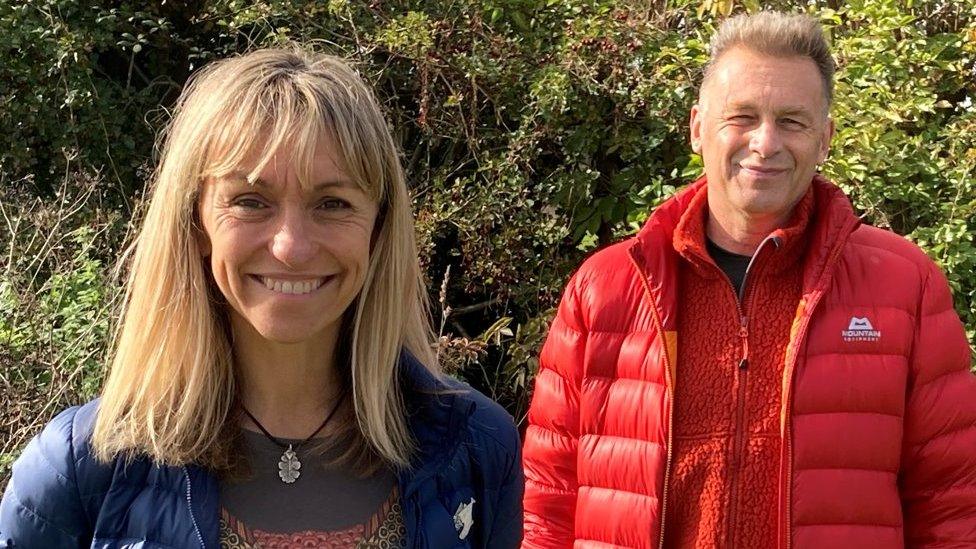
- Published30 July 2021
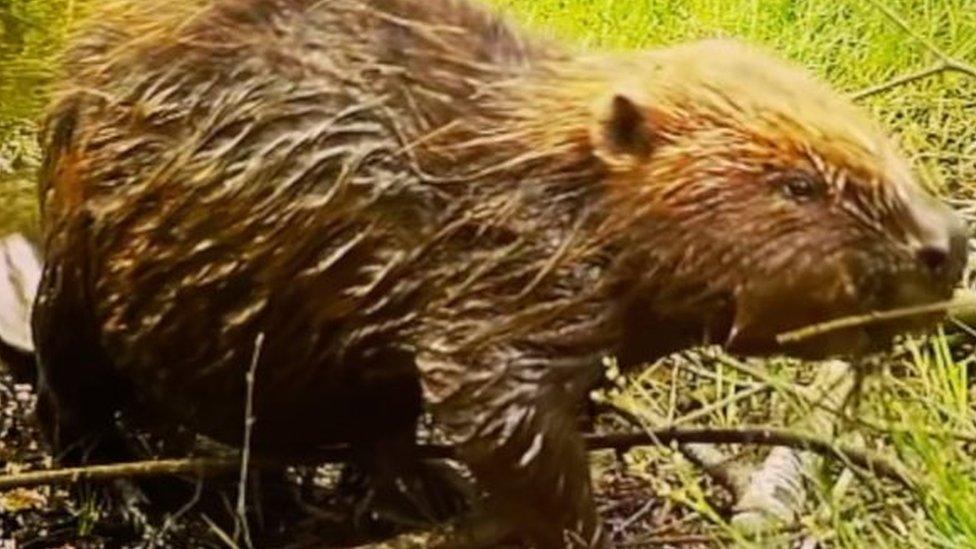
- Published1 October 2020
